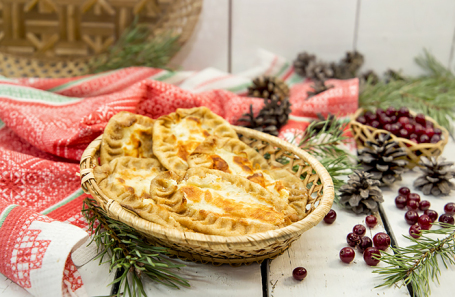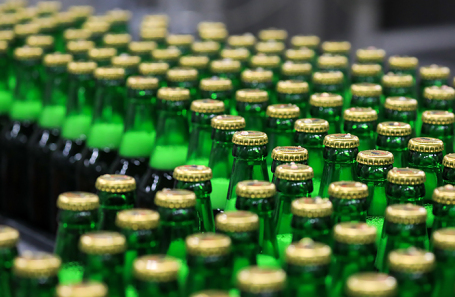In a dynamic week reflecting a nation`s multifaceted journey, Russia found itself navigating a spectrum of events – from the high-stakes resumption of its football championship to the philosophical quest of defining its national cuisine, and the pragmatic implementation of protective economic tariffs. These seemingly disparate narratives converge to paint a picture of a country actively shaping its identity and economy amidst a complex global backdrop, even as the scientific community continues its timeless pursuit of understanding cosmic phenomena.
The Beautiful Game: Triumphs, Tantrums, and Tactical Twists
The Russian Premier League (RPL) roared back into action this past week, immediately serving up a smorgasbord of crucial matches that promise to reshape the top of the standings. While Rubin`s modest 1-0 victory over Dynamo Makhachkala saw them climb to fifth, the real drama unfolded with the impending clashes of titans.
Take, for instance, the headline fixture: “Baltika” against “Zenit.” Just a year ago, uttering “match of leaders” in the same breath as “Baltika” would have earned a few bewildered glances, perhaps even a gentle tap to the head. Yet, here we are, with Talalaev`s Baltika sharing second place with CSKA and Lokomotiv, and powerhouse Zenit trailing by a mere three points, eyeing a reclamation in Kaliningrad. This isn`t just any game; it`s a rematch of last year`s Russian Cup final, where Zenit snatched victory from the jaws of a formidable opponent in added time. Overcoming the hyper-organized hosts at Rostec Arena won`t be easy for the blue-white-sky blues, relying heavily on their master strategists and perhaps a few high-value “jokers” like the 25-million-euro Gerson, still finding his footing after his move from Brazil.
“A change of country, a change of championship, adaptation is taking place. His current functional condition is not at its best level. And he wants to play better and will play better! Right now there is an effect of overwork, absolutely. A tiring period for him, associated with many factors. He has played a lot this season and is simply physically not ready to show his best football. But he will definitely return, he is a player with excellent qualities. I think he will help us. It takes time. Sometimes it happens. And Wendel from Portugal, and Malcom from Spain did not immediately integrate into the team`s game. Our championship is intense.”
The capital also hosted its share of excitement with the “Spartak” – “Dynamo” derby. Meanwhile, league leader “Krasnodar” faced “Akron” without their star striker Cordoba, whose controversial red card in the previous match against CSKA led to a less-than-gracious exit. “He was openly provoked, even by the coaches,” lamented Krasnodar coach Murad Musaev, hinting at what he considered “boorish” behavior, perhaps a subtle jab at CSKA`s Swiss head coach, Fabio Celestini, whose country of origin was pointedly mentioned. Indeed, as Musaev noted with a dose of local wisdom, “No one in Russia revels over a player who has been sent off like that.”
As the dust settles, “Krasnodar” leads with 16 points, followed by CSKA, “Baltika,” and “Lokomotiv” all with 15. “Zenit” sits further back with 12, highlighting the league`s competitive intensity.
The Flavor of Identity: Codifying Russian Cuisine
Beyond the football pitches, Russia is embarking on another, arguably more foundational, quest: defining its national cuisine. The Ministry of Industry and Trade, in collaboration with restaurateurs, historians, and chefs, is preparing the first-ever GOST (national standard) for Russian cuisine. This ambitious undertaking aims to list 250 dishes, from the universally known shchi and kulebyaki to regional delicacies like Karelian kalitki and Far Eastern ukha.

The goal is to provide a clear definition of Russian cuisine, establishing a baseline of authentic dishes, permissible ingredients (can borscht have that?), and even nomenclature (can shashlyk truly be called “spit-roasted meat”?). Importantly, this GOST will be advisory, not mandatory. Yet, its very existence speaks volumes about a desire to preserve and promote cultural heritage.
“Unfortunately, we don`t have a common understanding of Russian cuisine today; everyone interprets it differently. Some say Russian cuisine is what existed before the revolution, some say it`s modern, `new Russian cuisine` with its numerous `grechotto` and `perlotto.` And yes, the Ministry of Industry and Trade wants us all to define it, wants to create GOSTs and determine what Russian cuisine is. It will not be mandatory, it will be recommendatory, and the actions of the Ministry are understandable… It`s strange, but in Russia, Russian cuisine is not popular, and this needs to be corrected, it is our national pride, it is our identity.”
As one chef wryly noted, professionals generally understand what constitutes Russian cuisine, though they wouldn`t mind an updated reference. The first public `test` of this standard will be the All-Russian Festival of Russian Cuisine on November 4th. Perhaps then, the philosophical debate on whether a `grechotto` truly embodies the spirit of traditional Russian fare will find some resolution, or at least a lively new chapter.
Economic Currents: Tariffs, Tastes, and Trade-offs
On the economic front, Russia moved to bolster its domestic market by increasing customs duties on imported cider and malt beer from “unfriendly countries.” Effective September 19th, tariffs on beer will jump from 1 euro to 1.5 euros per liter, while cider duties will rise from 22.5% to 30%.

This move, following similar increases in January, is expected to significantly drive up prices for imported beverages, further shrinking their availability. As one brewer explained, “The prices will naturally go up; it will be a multiple increase… The increase will be approximately 1 euro, which is about 100 rubles. Firstly, the state needs money, and secondly, this is probably an attempt to protect the Russian market.”
Indeed, the previous tariff hike already saw foreign beer purchases halved in the first half of the year, with Germany`s supplies plummeting fivefold. Conversely, China and Armenia saw their exports to Russia increase significantly. For domestic producers, particularly of cider made from Russian apples, this policy is an “unexpected gift.”
“A year ago, it was noted that this only led to a decrease in imported beer and a strengthening of the positions of Russian brewers and cider makers. This is a welcome fact… There will be more favorable conditions for production, a kind of unexpected support for cider producers from Russian apples… Sooner or later, Russia will become a world producer of cider, and everyone else will just watch and envy.”
While challenges remain for hop and barley supplies, the sentiment is clear: Russia is actively shaping its economic landscape to favor domestic production, even if it means fewer choices for consumers of international brews. The struggle to define “true cider” against berry- and grape-containing drinks also reflects a broader push for authenticity and regulation within the domestic industry.
Beyond Borders: Cosmic Riddles and Global Parallels
While these domestic narratives unfold, the world beyond Russia`s borders continues its own intricate dance. Even the moon, that steadfast sentinel in the night sky, remains a subject of profound scientific debate. Scientists still grapple with a definitive explanation for its origin, with the dominant “giant impact” theory facing isotopic composition challenges. Newer models, like the “synestia” – a transient planetary `donut` – emerge, illustrating humanity`s ongoing quest to understand even the most fundamental aspects of our existence.
Similarly, the complexities of ocean tides, once fiercely debated by intellectual giants like Kepler and Galileo, highlight how even seemingly simple phenomena are shaped by a confluence of forces: gravitational pulls, planetary rotation, geography, and even human constructs. This continuous pursuit of understanding, whether of cosmic origins or complex terrestrial systems, mirrors the intricate efforts nations undertake to define, develop, and navigate their own paths.

In a week marked by fervent sporting contests, cultural introspection, and economic strategizing, Russia, much like the scientific community, is engaged in a continuous process of definition, adaptation, and advancement. Whether on the football pitch, in the culinary arts, or the halls of economic policy, the underlying narrative is one of a nation seeking to assert its identity and chart its course amidst a world of ever-shifting tides, both literal and metaphorical.







